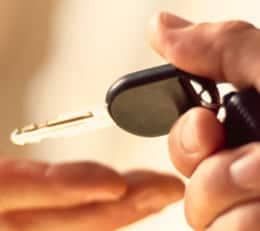


To prove the element of knowledge, the state must satisfy a reasonableness standard. If the state can prove that a person in your same position at the time of receiving the property in question did in fact know (had actual knowledge), or should have known (had constructive knowledge) that the property was stolen, then the knowledge element has been met. The “reasonableness” standard for “knowing the property to be stolen” under PC 496 of the Code depends on variable factors, ranging from your age, education, profession and previous criminal record (if applicable). A good faith belief that the goods were not in fact stolen might be sufficient to disprove this element. To illustrate, buying an item for far less than its fair market value and not making an inquiry as to the reason behind the low sales price, or whether the seller is legitimate, will be considered unreasonable if a “reasonable person” would have suspected that the item was “hot”. Therefore, you naivety will be no defense.
Being in possession of stolen property could mean either being in “actual possession” and in “constructive possession” of property. Property in one’s actual possession is property over which one has physical control. Property in one’s constructive possession is property one has the right to control, even if not by physical possession. Being in constructive possession of stolen property could happen if a person who stole valuables placed them inside your home through your consent. Because you are the owner of the home, and viewed as having control over it, you could be charged with receiving stolen property under these circumstances despite lacking physical control over the goods themselves.
Whereas stolen “property” includes tangible physical property, under a further reading of California Penal Code Section 502, specifically §502(b)(6),§502(b)(7),§502(b)(8)and §502(b)(10), “data”, “supporting documentation”, “injury” and “computer contaminant”, respectively, are reasonably susceptible to “property” for purposes of California PC 496. Basically, any hacked information can be regarded as stolen property.
The term “property” has also been extended under existing California case law to include intellectual property, comprising any secret or confidential information used to procure an economic benefit. Basically, any information that is “copyright-able”, such as trade secrets, patents and trademark, can be interpreted as “property” under CA Penal Code 496.
“Property” has been further extended under California Penal Code §537(e) to specifically include any property from which a serial number or mark can be removed, such as computers, bicycles, scientific equipment, vessel component, etc.
Under Section 496, receiving stolen property is considered a very serious crime. It can be charged as either a misdemeanor or a felony. The fact that it can be charged as a misdemeanor is the result of Proposition 47 recently passed in California, which reduced penalties imposed for certain crimes. Because receiving stolen property can be charged by the prosecutor as either a misdemeanor or a felony, it is referred to as a “wobbler”.
A misdemeanor carries with it a maximum of one year jail sentence. Some other court costs may also be imposed on the defendant.
A felony carries a jail sentence of over one year because the actions committed are considered more serious.
The prosecutor may use his or her discretion based on the facts of the case and the criminal history of a defendant.
Yes. In fact, where the value of the property is equal to or less than $950, the prosecutor must plead the crime as a misdemeanor. Discretion by the prosecutor is therefore out of the question here.
The maximum sentence would be three years in jail and a maximum fine of $10,000.
The maximum sentence is one year plus a maximum fine of $1,000.
Restitution Orders to Victims of Crimes in California
Beyond formal sentencing and penalties, under the following code sections of the California Constitution, CA Penal Code and CA Welfare and Institutions Code, the court can force a defendant to pay back economic losses suffered by victims through the crime of receiving stolen property:
Mandated Under the California Constitution
Under the California Constitution, Art. 1, Section 28, subdivision (b), victims of crimes have a right protected under the state constitution to receive reasonable restitution for their economic losses.
Under Section 1202.4 of the CA Penal Code
The California Penal Code Section 1202.4 provides for the same mandatory restitution to be paid directly from the defendant to the victim where the criminal act caused the economic loss.
Under Section 730.6 of the California Welfare and Institutions Code
Minors involved in crimes which incurred economic loss to victims are also subject to payment of a separate restitution fee as shall be determined by the court based on the seriousness of the crime.

In order to charge any person with a crime, the prosecution must successfully prove every element of the charge beyond a reasonable doubt. Failure to meet any one of the elements results in failure to prove the crime as charged.
The elements of receiving stolen property under California Penal Code 496(a) are:
The status of specific business owners can be relevant to a charge of receiving stolen property under California Penal Code Section 496(b):
Both legal and procedural defenses may be helpful to your successful defense. For the state to successfully charge an individual with receiving stolen property, both “bad act” (actus reus) and “bad mind” (mens rea) requirements must be proved to have coexisted. For example, if you end up having actual possession of stolen property which you bought at a reasonable price, there is no mens rea, so the charge will be dropped.
Legal Defenses
For example, if you drank too much at a party, or took narcotics for recreational purposes, and used that to defend against the “knowledge” element of receiving stolen property, you will likely be unsuccessful. The test used is if a sober individual would have known the property was stolen, voluntary intoxication is no defense.
Procedural Defenses
The prosecution can use many different facts to prove their case, and this will depend on particular facts in every situation. Here are a few examples of some facts that would help the prosecution build a stronger case:
If you or a loved one is being charged in violation of PC 496 (Receiving Stolen Property), we invite you to contact us immediately for a free case review. Schedule an appointment to meet with us in person, or feel free to submit an evaluation online and we will get in contact with you ASAP.
One of our Criminal Defense Attorneys will give an honest, free consultation in our office, or most commonly by phone.
Call LAW MART for a FREE Case Review: 310-894-6440

Copyright © 2024 law – Powered by AmelCS